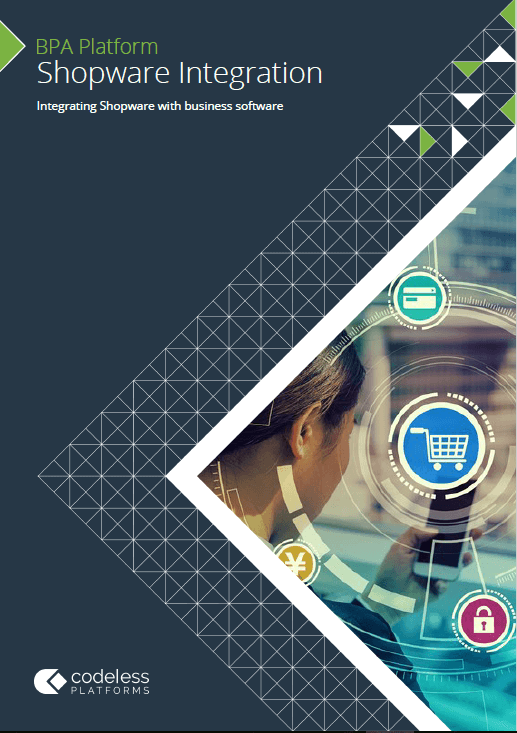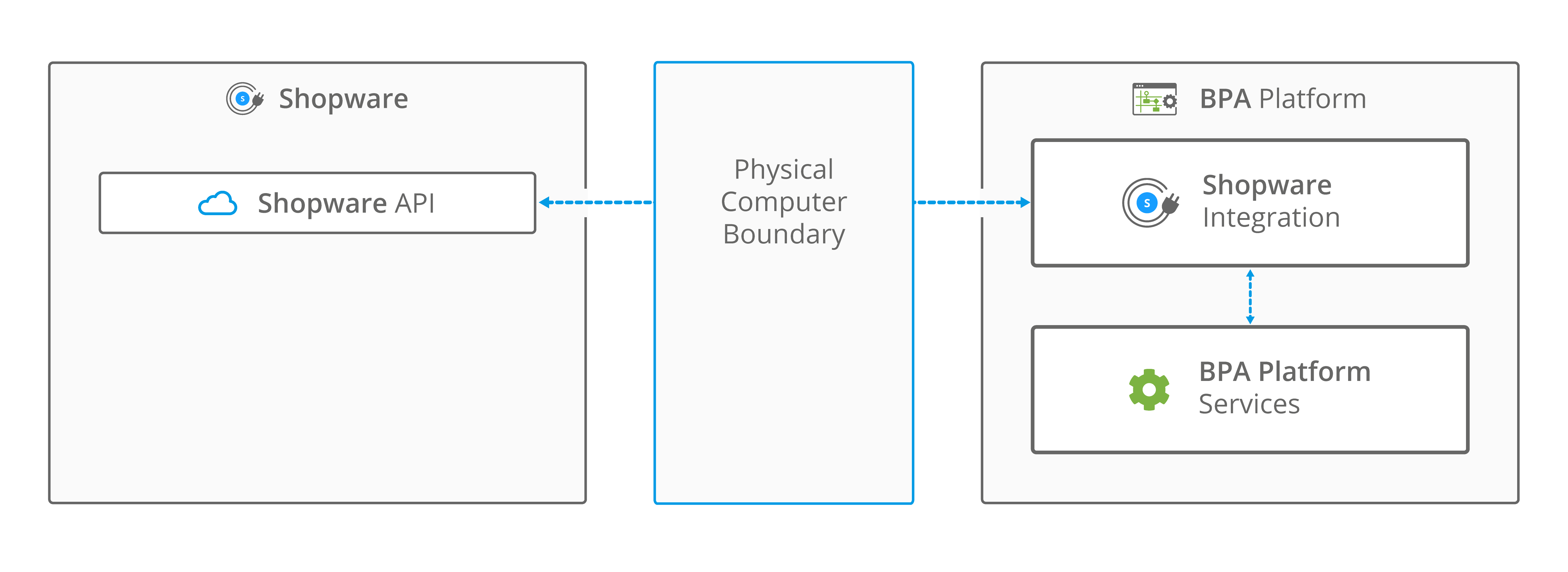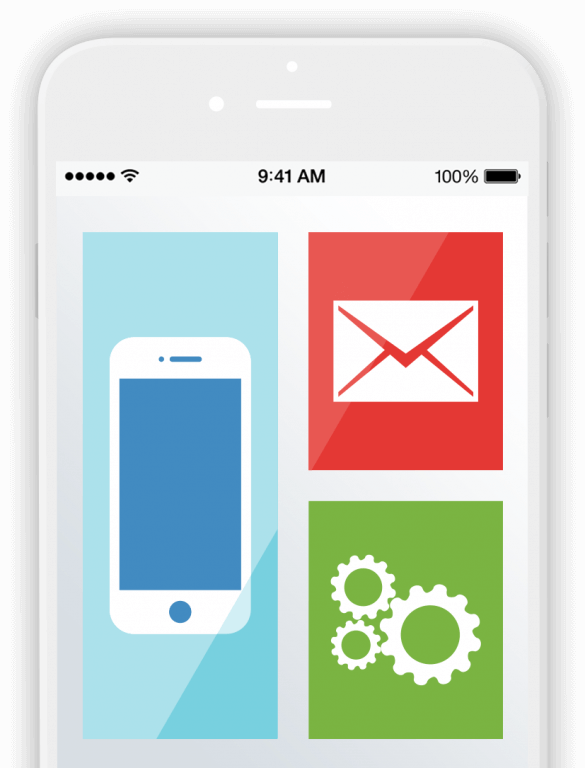Shopware API Integration
Are you looking for a market-proven Shopware Enterprise integration solution to integrate the Shopware API with your ERP, CRM, or preferred courier service provider? Or are you looking for a Shopware Enterprise integration solution to streamline your eCommerce order management process and ensure that products, stock and pricing are consistent across your business systems to help drive company revenue?
Codeless Platforms' Shopware integration connector provides companies of any size with drag-and-drop tools to simplify access to the Shopware API and enables you to read and write data to and from your Shopware eCommerce platform and your in-house business systems. Integrating Shopware with your other business systems provides you with the ability to automate your order management processes, products and stock and synchronise pricing updates. It removes repetitive, costly and error-prone administration tasks from employee workloads and improves product listings and catalogue consistency throughout the business.
No data integration project is the same, that’s why our Shopware Enterprise integration solution has the flexibility to provide you with a full drag and drop user experience to ensure that integration steps are visually represented with a wider automated process.

Shopware Integration Brochure
Shopware API Integration Features and Benefits
Shopware Integration Overview
The Shopware integration tool provides you with the ability to communicate between BPA Platform and your Shopware eCommerce platform. All communication uses XML and you use the integration tool to map BPA Platform data to Shopware objects and operations. Operations, such as Add, Get, Update and Delete, are supported for a variety of business objects, such as Products and Stock, Customer and Order.
The XML responses received back from the Shopware API can be saved to file or passed to another BPA Platform tool for further processing. The responses can include details of the object requested, any errors from the provider, or the values of any automatically generated ID fields.
For example, you can use Shopware integration to provide an indirect link between other business systems and applications that do not normally synchronise data with each other, such as automating the synchronisation of contacts from a CRM system as Shopware customers, dynamically importing Shopware orders into your ERP system, or to even provide reports containing data from both systems.

Image: A high-level system architecture overview of the Shopware integration solution, with BPA Platform and the Shopware API
Standard operations of the Shopware Enterprise integration solution:
- Shopware ERP integration: SAP Business One, SAP Business ByDesign, Access Dimensions, Microsoft Dynamics NAV / 365 Business Central, Sage Office Line, Sage 200, Sage 1000, Sage X3, SYSPRO, Epicor, Exact etc.
- Shopware CRM integration: Salesforce, Sage CRM, SugarCRM, Microsoft Dynamics 365 CRM, Maximizer CRM etc.
- Customer Account Management: Automatically create and update customer accounts including customer details, billing address and shipping address
- Shopware eCommerce order automation: Automatically process orders from Shopware to your ERP system, e.g. customer billing/shipping details, delivery method, payment method, quantity ordered, product code, product description etc.
- Products: Automate product updates including product SKU, product description, tax class, weight, retail price, available inventory levels etc.
- Inventory and Pricing: Automatically update inventory from your ERP system and upload price changes to Shopware
- Sales order status update: Automatically upload sales order status updates from your ERP system to Shopware
- Payments: Automate the synchronisation of transaction IDs and automatically create incoming Accounts Receivable (AR) invoices and payments
- Delivery: Automate the synchronisation of order tracking IDs and delivery confirmations between your ERP, courier and Shopware
- Alerts and notifications: Identify transactions, check for errors, and send an internal alert if a sales process fails
- Fraud Risk Assessment (FRA): Automatically place orders on hold with no stock allocated in your ERP system if an order has been identified as medium or high risk of fraud, and send an advisory notification to an administrator to action
- Courier Service integration: UPS, DPD, FedEx etc.
- Report automation: Automatic creation and distribution of reports and documents on a scheduled or database event. Ensure copies are saved to both a network location or sent via email, FTP or print, e.g. pick lists, delivery notes, stock reports, sales etc.
- Additional services: Purchase Order (PO) invoice automation, automated pick list creation, dispatch note creation, shipping notifications, automated email campaigns, e.g. slow-moving stock
Common commercial advantages of integrating Shopware Enterprise with your other business systems include:
- Significantly reduce order fulfilment times and costs
- Ability to process a higher volume of sales without increasing company headcounts
- Reduced operational costs
- Improved product listings and catalogue consistency
- Ability to eradicate repetitive data entry
- Increased visibility of customer data to help identify buying history and patterns
Frequently Asked Questions

Shopware Integration Brochure
Subscription Pricing
Shopware API Integration
Software from
BPA Platform
£175
2100ROI Calculator
Use our simple ROI calculator to discover how much you could save each year through automation.


